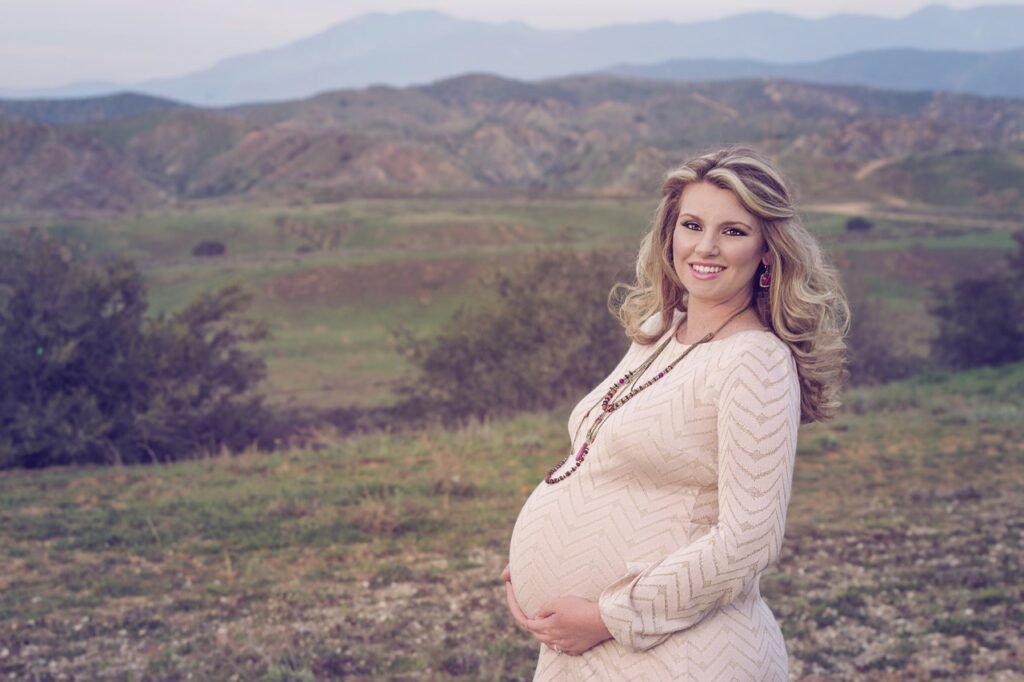Pregnancy is usually considered a happy or joyous time. Unfortunately, for some people, especially those from marginalized communities, it signifies increased health risks. Maternal health continues to be one of those top-priority areas, especially in the United States, where pregnancy complications disproportionately affect women of color and those in low-income communities.

The rest of the world will now walk one day at a time, as most remain ignorant of the stress a pregnancy would likely impose on health, combined with pre-existing health problems and little or no access to quality care. Some women who are pregnant feel happiness and anticipation for their coming children; for others, however, lies a much deeper and more dangerous truth.
Pregnancy-The Hidden Peril
Pregnancy is very taxing on the body and nearly interferes with every organ system. For many, it works as a kind of “stress test” on the body, demanding that the heart, lungs, kidney, and even the immune system function differently, with more demands pressed upon it in someone with pre-existing conditions, high blood pressure, diabetes, and/or heart disease. Most of the changes usually described as pregnancy may be overwhelming, constituting: greater blood flow; changed metabolism; effects on major organ systems.
The danger of pregnancy is not only concerned with immediate suffering but also involves long-term health implications. With complications of pregnancy being among the highest in developed countries, this area of maternal health risks sees an American counterpart. The most fearful thing is that Black women are three times more likely than their white counterparts to die from complications related to the pregnancy.. This unequal burden is also borne by those already facing systemic barriers in healthcare and economic resources.
Pregnancy Impact on Maternal Health
Another serious health risk imposed on the mother is this hypertensive disorder of pregnancy called preeclampsia, with possible damage to organs such as the kidneys, the liver, and also the brain. It increases stress on the heart and blood vessels, and the woman with preeclampsia is prone to developments of cardiovascular complications like strokefatty heart attacks. After the current pregnancy, there are future risks for those who’ve had preeclampsia.
A most dangerous complication is postpartum hemorrhage—severe bleeding after childbirth. While specific conditions may place the individual at a higher risk, for example, multiple pregnancies or certain medical disorders, postpartum hemorrhage can occur any time after any pregnancy, even the apparently straightforward ones.
Pregnancy at older ages compounding these risks. Pregnancies above the age of 35 are at an increased risk for complications that may include high blood pressure and heart disease, seeking more specialized care. More often than not, medical teams have to coordinate among themselves for good outcomes, which poses a challenge for those without proper access to healthcare.
The Reality of Unintended Pregnancies
Almost half of all pregnancies in the United States are unintended, whether unplanned or delayed. Many couples use contraception to prevent pregnancies; however, this is not always successful. In fact, some methods are rarely fool-proof. Contraceptive pills, to illustrate, have a failure rate of 7% when used correctly. That means that, even on occasions when the best precautions have been taken, an unintended pregnancy will still occur. Other medical conditions and medications, such as those used to treat epilepsy, could also be a reason for these birth control failures.
For some, this may mean an unplanned pregnancy may be accepted later. But for others, the physical, emotional, and financial strains of unplanned pregnancies may take a toll. In a world where increasingly barring access to reproductive healthcare, much fewer options and all the more barriers lie against those facing unintended pregnancies in obtaining necessary healthcare.
The Effects of Restrictions on Abortion
Since the Dobbs Supreme Court ruling of June 2022, the power to make choices regarding pregnancy has been taken away in many states. At least 14 states have outlawed or severely restricted abortion care. It is health, safety, and equity—not simply choice.
Research shows that when people wanting an abortion are denied care, they are again faced with life-threatening health complications and financial hardships. Those people are, later during pregnancy, more susceptible to complications and more likely to be living in poverty years after the birth of the child. These policies have most severely affected Black women and low-income women who are already at a higher risk for complications during pregnancy and childbirth.
As states impose more restrictive laws, individuals seeking abortion care must traverse long distances, compounding further economic and logistical burdens. The restrictions on healthcare options especially affect those without resources, ultimately worsening already-existing inequities in health and affecting marginalized groups.
Personal and Health-Centric Decision
To be pregnant is ultimately a personal decision. It has individual conditions, health, and beliefs related to it. Ideally, all options would then guide with the care access including abortion, between patients and healthcare providers.
Provisions have diminished access to care beyond everything else maternal: abortion services. All these options remain fundamental to maternal health. Those with forced pregnancy suffer threats to health, safety, and socio-economic condition. The ability to choose when to become whether or not a parent is fundamental for both personal well-being and public health.
This we as society ought to recognize-the unequal burden that pregnancy and childbirth place on people’s health and the gross inequities that exist within maternal health services. To transform all maternal health outcomes, we must put in place a healthcare system that stands for every individual’s right to informed decisions regarding his body and future, free from political interferences or societal judgment.
